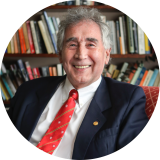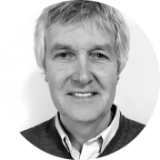Learning Objectives of the Overall Activity
(written from the participant’s point of view)
At the conclusion of this activity, I will be able to:
- develop ideas and reflect about the role of whole person care in medical education and its implications
- recommend and apply compassionate health care to relieve suffering and foster healing
- identify important areas of my work that I am not paying sufficient attention to (elephants in the room) to provide whole person care to my patients.
|
Thursday, October 19, 2023 |
|||||||||||||||||||||||||||||||||||||||||||||||||||||||||||||||||||||||||||||||||||||||||||||||||||||||||||||||||||||||||||||||||||||||||||||||||||||||||||||||||||||||||||||||||||||||||||||||||||||||||||||||||||||||||||||||||||||||||||||||||||||||||||||||||||||||||||||||||||||||||||||||||||||||||||||
|---|---|---|---|---|---|---|---|---|---|---|---|---|---|---|---|---|---|---|---|---|---|---|---|---|---|---|---|---|---|---|---|---|---|---|---|---|---|---|---|---|---|---|---|---|---|---|---|---|---|---|---|---|---|---|---|---|---|---|---|---|---|---|---|---|---|---|---|---|---|---|---|---|---|---|---|---|---|---|---|---|---|---|---|---|---|---|---|---|---|---|---|---|---|---|---|---|---|---|---|---|---|---|---|---|---|---|---|---|---|---|---|---|---|---|---|---|---|---|---|---|---|---|---|---|---|---|---|---|---|---|---|---|---|---|---|---|---|---|---|---|---|---|---|---|---|---|---|---|---|---|---|---|---|---|---|---|---|---|---|---|---|---|---|---|---|---|---|---|---|---|---|---|---|---|---|---|---|---|---|---|---|---|---|---|---|---|---|---|---|---|---|---|---|---|---|---|---|---|---|---|---|---|---|---|---|---|---|---|---|---|---|---|---|---|---|---|---|---|---|---|---|---|---|---|---|---|---|---|---|---|---|---|---|---|---|---|---|---|---|---|---|---|---|---|---|---|---|---|---|---|---|---|---|---|---|---|---|---|---|---|---|---|---|---|---|---|---|---|---|---|---|---|---|---|---|---|---|---|---|---|---|---|---|---|---|---|---|---|---|---|---|---|---|---|---|---|---|---|---|---|---|
| TIME | SESSION | SPEAKERS | |||||||||||||||||||||||||||||||||||||||||||||||||||||||||||||||||||||||||||||||||||||||||||||||||||||||||||||||||||||||||||||||||||||||||||||||||||||||||||||||||||||||||||||||||||||||||||||||||||||||||||||||||||||||||||||||||||||||||||||||||||||||||||||||||||||||||||||||||||||||||||||||||||||||||||
| 5:25-5:30pm |
Words of Welcome McGill Land Acknowledgment Video Clip |
||||||||||||||||||||||||||||||||||||||||||||||||||||||||||||||||||||||||||||||||||||||||||||||||||||||||||||||||||||||||||||||||||||||||||||||||||||||||||||||||||||||||||||||||||||||||||||||||||||||||||||||||||||||||||||||||||||||||||||||||||||||||||||||||||||||||||||||||||||||||||||||||||||||||||||
| 5:30-6:30pm |
Public Lecture: Promoting Healing and Resilience in People with Cancer: A Nursing Perspective |
 Mary Grossman |
|||||||||||||||||||||||||||||||||||||||||||||||||||||||||||||||||||||||||||||||||||||||||||||||||||||||||||||||||||||||||||||||||||||||||||||||||||||||||||||||||||||||||||||||||||||||||||||||||||||||||||||||||||||||||||||||||||||||||||||||||||||||||||||||||||||||||||||||||||||||||||||||||||||||||||
| 6:30-7:30pm | Welcome Reception |
||||||||||||||||||||||||||||||||||||||||||||||||||||||||||||||||||||||||||||||||||||||||||||||||||||||||||||||||||||||||||||||||||||||||||||||||||||||||||||||||||||||||||||||||||||||||||||||||||||||||||||||||||||||||||||||||||||||||||||||||||||||||||||||||||||||||||||||||||||||||||||||||||||||||||||
|
Friday, October 20, 2023 |
|||||||||||||||||||||||||||||||||||||||||||||||||||||||||||||||||||||||||||||||||||||||||||||||||||||||||||||||||||||||||||||||||||||||||||||||||||||||||||||||||||||||||||||||||||||||||||||||||||||||||||||||||||||||||||||||||||||||||||||||||||||||||||||||||||||||||||||||||||||||||||||||||||||||||||||
| TIME | SESSION | SPEAKERS | |||||||||||||||||||||||||||||||||||||||||||||||||||||||||||||||||||||||||||||||||||||||||||||||||||||||||||||||||||||||||||||||||||||||||||||||||||||||||||||||||||||||||||||||||||||||||||||||||||||||||||||||||||||||||||||||||||||||||||||||||||||||||||||||||||||||||||||||||||||||||||||||||||||||||||
| 7:30-8:25am |
Writing as a Mindful Practice |
 Hilton Koppe |
|||||||||||||||||||||||||||||||||||||||||||||||||||||||||||||||||||||||||||||||||||||||||||||||||||||||||||||||||||||||||||||||||||||||||||||||||||||||||||||||||||||||||||||||||||||||||||||||||||||||||||||||||||||||||||||||||||||||||||||||||||||||||||||||||||||||||||||||||||||||||||||||||||||||||||
| 8:25-8:30am |
McGill Land Acknowledgment Video Clip |
||||||||||||||||||||||||||||||||||||||||||||||||||||||||||||||||||||||||||||||||||||||||||||||||||||||||||||||||||||||||||||||||||||||||||||||||||||||||||||||||||||||||||||||||||||||||||||||||||||||||||||||||||||||||||||||||||||||||||||||||||||||||||||||||||||||||||||||||||||||||||||||||||||||||||||
|
8:30-9:30am |
Plenary Session: Mortality-Informed Care for Whole Persons In this session, Dr. Byock will offer an alternative - reframing illness, dying and grieving as components of full and healthy living. This shift clarifies the goals of medicine and expands the scope of human caring to encompass individual and family well-being through the end of life. When grounded in the full breadth of human experience, the roles of physicians and other professional caregivers become deeply satisfying. |
||||||||||||||||||||||||||||||||||||||||||||||||||||||||||||||||||||||||||||||||||||||||||||||||||||||||||||||||||||||||||||||||||||||||||||||||||||||||||||||||||||||||||||||||||||||||||||||||||||||||||||||||||||||||||||||||||||||||||||||||||||||||||||||||||||||||||||||||||||||||||||||||||||||||||||
|
9:30-9:45am |
Coffee Break |
|
|||||||||||||||||||||||||||||||||||||||||||||||||||||||||||||||||||||||||||||||||||||||||||||||||||||||||||||||||||||||||||||||||||||||||||||||||||||||||||||||||||||||||||||||||||||||||||||||||||||||||||||||||||||||||||||||||||||||||||||||||||||||||||||||||||||||||||||||||||||||||||||||||||||||||||
| 9:45-11:15am |
SESSION CHAIR: Stephen Liben, MDConcurrent Sessions Using the Serious Illness Conversation Guide to Improve the Quality of Life of Hematology-Oncology Patients: A Pilot Study Psilocybin-Assisted Psychotherapy for Cancer Patients Considering Life through Death - Introduction to Lessons of Life A New Communication Model for Procedure-Oriented Health Care Professionals Simulating a Situation of Homelessness: Nursing Students' Perceptions of Learning through Virtual Embodiment Facing Our Own Dying: Exploring Conflicts between Our Individual Professional Stance and Our Own Personal Views on MAiD |
Victoria Korsos Houman Farzin Yusuke Takamiya Carmelina D'Arro Niki Soilis Anna Towers |
|||||||||||||||||||||||||||||||||||||||||||||||||||||||||||||||||||||||||||||||||||||||||||||||||||||||||||||||||||||||||||||||||||||||||||||||||||||||||||||||||||||||||||||||||||||||||||||||||||||||||||||||||||||||||||||||||||||||||||||||||||||||||||||||||||||||||||||||||||||||||||||||||||||||||||
| 9:45-11:15am |
SESSION CHAIR: Krista Lawlor, MDWorkshop: Enduring Witness: A Book-in-Hand Play Performance As a rural general practitioner (family physician), I have the privilege of journeying with my patients through health and illness. This is mostly a joy, but there are times of immense challenge. I am often the only health practitioner to follow a patient during periods of good health, at the time of a significant diagnosis, then during treatment, remission, follow up, relapse (if that were to occur) and end-of-life care. During this interactive workshop, a book-in-hand performance piece representing this journey will be presented. Enduring Witness traces the relationship between Jane, a general practitioner/family doctor, and one of her patients, Lisa. We initially meet Lisa as a schoolgirl, and then follow her growth through young adulthood to marriage and parenthood. Lisa develops breast cancer, and we witness the ups and downs for both characters during her treatment, initial remission, relapse and finally her death. The action takes place in Jane’s clinic room via snippets of conversations from Lisa’s visits. Each conversation is followed by an exploration of the inner world of the characters. Contributions to the script have come from writers from around the world. At the conclusion of the performance, the actors will stay in role, and there will be a facilitated discussion, allowing audience members to ask questions directly to the “characters”. Audience members will also have the opportunity to respond to what they have witnessed through a simple reflective writing exercise. |
 Hilton Koppe |
|||||||||||||||||||||||||||||||||||||||||||||||||||||||||||||||||||||||||||||||||||||||||||||||||||||||||||||||||||||||||||||||||||||||||||||||||||||||||||||||||||||||||||||||||||||||||||||||||||||||||||||||||||||||||||||||||||||||||||||||||||||||||||||||||||||||||||||||||||||||||||||||||||||||||||
|
11:15-11:30am |
Coffee Break |
|
|||||||||||||||||||||||||||||||||||||||||||||||||||||||||||||||||||||||||||||||||||||||||||||||||||||||||||||||||||||||||||||||||||||||||||||||||||||||||||||||||||||||||||||||||||||||||||||||||||||||||||||||||||||||||||||||||||||||||||||||||||||||||||||||||||||||||||||||||||||||||||||||||||||||||||
|
11:30am-12:30pm |
Panel Discussion |
||||||||||||||||||||||||||||||||||||||||||||||||||||||||||||||||||||||||||||||||||||||||||||||||||||||||||||||||||||||||||||||||||||||||||||||||||||||||||||||||||||||||||||||||||||||||||||||||||||||||||||||||||||||||||||||||||||||||||||||||||||||||||||||||||||||||||||||||||||||||||||||||||||||||||||
| 12:30-1:25pm |
SESSION CHAIR: Joanna Caron, MDFormal Poster Session Lunch |
|
|||||||||||||||||||||||||||||||||||||||||||||||||||||||||||||||||||||||||||||||||||||||||||||||||||||||||||||||||||||||||||||||||||||||||||||||||||||||||||||||||||||||||||||||||||||||||||||||||||||||||||||||||||||||||||||||||||||||||||||||||||||||||||||||||||||||||||||||||||||||||||||||||||||||||||
| 1:25-1:30pm | Reflection: On Lifesaving Care and the Necessity of Dignity. The Story of Mrs. Hassan by Alexander Stoljar Gold |  Alexander Stoljar Gold |
|||||||||||||||||||||||||||||||||||||||||||||||||||||||||||||||||||||||||||||||||||||||||||||||||||||||||||||||||||||||||||||||||||||||||||||||||||||||||||||||||||||||||||||||||||||||||||||||||||||||||||||||||||||||||||||||||||||||||||||||||||||||||||||||||||||||||||||||||||||||||||||||||||||||||||
| 1:30-2:30pm |
Introduction of Speaker Plenary Session: Trauma Informed Education Each day, millions of adolescents walk into schools and classrooms across the world carrying backpacks not just filled with pencils and books. They are also carrying what psychologists refer to as “invisible” backpacks that are filled with trauma. These backpacks are heavy and can be complete with fear, anxiety, anger, and disengagement. School staff must be prepared to not only assist students with learning their A-B-Cs, but they must also begin to address the challenges that result from the trauma our students are experiencing in their lives. Educators no longer have a choice about whether or not they want to address the trauma their students come to school with every day. Instead, they must create sustainable change by building trauma-informed classrooms that have the power to transform how our students learn in school and how they relate to the world. |
||||||||||||||||||||||||||||||||||||||||||||||||||||||||||||||||||||||||||||||||||||||||||||||||||||||||||||||||||||||||||||||||||||||||||||||||||||||||||||||||||||||||||||||||||||||||||||||||||||||||||||||||||||||||||||||||||||||||||||||||||||||||||||||||||||||||||||||||||||||||||||||||||||||||||||
|
2:30-2:45pm |
Coffee Break |
|
|||||||||||||||||||||||||||||||||||||||||||||||||||||||||||||||||||||||||||||||||||||||||||||||||||||||||||||||||||||||||||||||||||||||||||||||||||||||||||||||||||||||||||||||||||||||||||||||||||||||||||||||||||||||||||||||||||||||||||||||||||||||||||||||||||||||||||||||||||||||||||||||||||||||||||
| 2:45-4:15pm |
SESSION CHAIR: Timothy Wideman, Ph.D.Concurrent Sessions The Art and Skills of Compassion in Practice The Empathy Imperative in Whole Person Care - For Patients and Physicians Invitations to Think and Feel in Forensic Nursing; the Role of Clinical Supervision and Reflective Practice "He Told Me My Pain Was in My Head": Testimonial Injustice in Patient-Physician Relationships Into the Looking Glass on Cultural and Religious Competent Care: Optimizing Healthcare for Haredi Individuals with Mental Illness Mindfulness and Therapeutic Relationships: Insights from a Phenomenological Study of Occupational Therapists' Practices |
Anita Nowak & Milan Sen Nicola O'Sullivan Marie Vigouroux Eliana Rohr Kirsten Smith |
|||||||||||||||||||||||||||||||||||||||||||||||||||||||||||||||||||||||||||||||||||||||||||||||||||||||||||||||||||||||||||||||||||||||||||||||||||||||||||||||||||||||||||||||||||||||||||||||||||||||||||||||||||||||||||||||||||||||||||||||||||||||||||||||||||||||||||||||||||||||||||||||||||||||||||
| 2:45-4:15pm |
SESSION CHAIR: Mark Smilovitch, MDWorkshop: The Invisibility of Care and a New Paradigm for the Art of Being in Relation How do humans continue to care in a rapidly changing society, accelerated by digital, non-human technologies and unprecedented environmental crises driving a multitude of pressures on humanity and its relationships? Is it possible that the salve to the overwhelming intensity of the modern world is simply to (re)learn the therapeutic and transformative power of relationships – that which anchors us in ourselves (self care), makes us feel cared for (interpersonal care), like we belong (community care), and connected to something bigger (societal/environmental care)? How do we (re)awaken this awareness in medicine, the profession which has traditionally been tasked with the responsibility of caring? In this innovative session, we will attempt to address these questions by shifting the current epistemology of medicine to expand beyond a model of expertise to also an experience created in relation – the relationship of human beings with each other and other species where care is created and (co-)constructed. By exploring both the bases of the bio-medical perspective and the perspective of lived-experience (the patient), we will look at the currently invisible parts of care (the elephant in the room!) and the consequences that occur from this invisibility. Finally, we propose a new framework for medical education based on the art of being in relation that could help all those who care for, to address the hyper-complexity of health in the 21st century. |
Marie Leclaire |
|||||||||||||||||||||||||||||||||||||||||||||||||||||||||||||||||||||||||||||||||||||||||||||||||||||||||||||||||||||||||||||||||||||||||||||||||||||||||||||||||||||||||||||||||||||||||||||||||||||||||||||||||||||||||||||||||||||||||||||||||||||||||||||||||||||||||||||||||||||||||||||||||||||||||||
| 4:15-4:30pm |
Coffee Break |
||||||||||||||||||||||||||||||||||||||||||||||||||||||||||||||||||||||||||||||||||||||||||||||||||||||||||||||||||||||||||||||||||||||||||||||||||||||||||||||||||||||||||||||||||||||||||||||||||||||||||||||||||||||||||||||||||||||||||||||||||||||||||||||||||||||||||||||||||||||||||||||||||||||||||||
| 4:30-5:30pm |
Panel Discussion |
|
|||||||||||||||||||||||||||||||||||||||||||||||||||||||||||||||||||||||||||||||||||||||||||||||||||||||||||||||||||||||||||||||||||||||||||||||||||||||||||||||||||||||||||||||||||||||||||||||||||||||||||||||||||||||||||||||||||||||||||||||||||||||||||||||||||||||||||||||||||||||||||||||||||||||||||
| 6:30-9:00pm |
An Evening of Mindful Bittersweet Entertainment
|
|
|||||||||||||||||||||||||||||||||||||||||||||||||||||||||||||||||||||||||||||||||||||||||||||||||||||||||||||||||||||||||||||||||||||||||||||||||||||||||||||||||||||||||||||||||||||||||||||||||||||||||||||||||||||||||||||||||||||||||||||||||||||||||||||||||||||||||||||||||||||||||||||||||||||||||||
|
Saturday, October 21, 2023 |
|||||||||||||||||||||||||||||||||||||||||||||||||||||||||||||||||||||||||||||||||||||||||||||||||||||||||||||||||||||||||||||||||||||||||||||||||||||||||||||||||||||||||||||||||||||||||||||||||||||||||||||||||||||||||||||||||||||||||||||||||||||||||||||||||||||||||||||||||||||||||||||||||||||||||||||
| TIME | SESSION | SPEAKERS | |||||||||||||||||||||||||||||||||||||||||||||||||||||||||||||||||||||||||||||||||||||||||||||||||||||||||||||||||||||||||||||||||||||||||||||||||||||||||||||||||||||||||||||||||||||||||||||||||||||||||||||||||||||||||||||||||||||||||||||||||||||||||||||||||||||||||||||||||||||||||||||||||||||||||||
| 7:30-8:25am |
Writing as a Mindful Practice |
 Hilton Koppe |
|||||||||||||||||||||||||||||||||||||||||||||||||||||||||||||||||||||||||||||||||||||||||||||||||||||||||||||||||||||||||||||||||||||||||||||||||||||||||||||||||||||||||||||||||||||||||||||||||||||||||||||||||||||||||||||||||||||||||||||||||||||||||||||||||||||||||||||||||||||||||||||||||||||||||||
|
8:25-8:30am |
McGill Land Acknowledgment Video Clip |
|
|||||||||||||||||||||||||||||||||||||||||||||||||||||||||||||||||||||||||||||||||||||||||||||||||||||||||||||||||||||||||||||||||||||||||||||||||||||||||||||||||||||||||||||||||||||||||||||||||||||||||||||||||||||||||||||||||||||||||||||||||||||||||||||||||||||||||||||||||||||||||||||||||||||||||||
|
8:30-9:30am |
Plenary Session: Systems Thinking and the Underlying Logics of Contemporary Healthcare: Countervailing Tensions and Potential Resources |
||||||||||||||||||||||||||||||||||||||||||||||||||||||||||||||||||||||||||||||||||||||||||||||||||||||||||||||||||||||||||||||||||||||||||||||||||||||||||||||||||||||||||||||||||||||||||||||||||||||||||||||||||||||||||||||||||||||||||||||||||||||||||||||||||||||||||||||||||||||||||||||||||||||||||||
|
9:30-9:45am |
Coffee Break |
|
|||||||||||||||||||||||||||||||||||||||||||||||||||||||||||||||||||||||||||||||||||||||||||||||||||||||||||||||||||||||||||||||||||||||||||||||||||||||||||||||||||||||||||||||||||||||||||||||||||||||||||||||||||||||||||||||||||||||||||||||||||||||||||||||||||||||||||||||||||||||||||||||||||||||||||
| 9:45-11:15am |
SESSION CHAIR: Allen Steverman, MDConcurrent Sessions Anatomy of the Elephant in Quebec Family Practice "I Get to Know Them as a Whole Person": Family Physician Stories of Proximity to Patients Experiencing Social Inequity Narrative Medicine and Narrative Practice: Partners in the Creation of Meaning ICU Bridge Program: Working with Staff Towards No Family Members Feeling Like "the Elephant in the Room" Ethical Challenges for Children Undergoing Surgery: Evaluation of Graduate Nursing Students' Learning Whole Person Care in Philanthropy - Healing & Giving |
Monica Molinaro Miriam Colleran Adrian Goin & Danielle Fox Ariane Gautrin Glen Komatsu |
|||||||||||||||||||||||||||||||||||||||||||||||||||||||||||||||||||||||||||||||||||||||||||||||||||||||||||||||||||||||||||||||||||||||||||||||||||||||||||||||||||||||||||||||||||||||||||||||||||||||||||||||||||||||||||||||||||||||||||||||||||||||||||||||||||||||||||||||||||||||||||||||||||||||||||
| 9:45-11:15am |
SESSION CHAIR: Simon Rousseau, Ph.D.Workshop: Artificial Intelligence: Potentials and Perils for Healthcare Education and Delivery Background & Purposes: Recent and sustained developments in generative artificial intelligence (AI) tools, and their widespread accessibility are challenging our typical methods for teaching, learning and assessment particularly due to concerns about academic integrity. The impact of these tools has potential significant ramifications for healthcare-both positive, and rife with challenges. Our purpose in this interactive workshop is to delve into these potentials and perils through purposefully designed activities that engage participants in meaningful discussions. Format: The workshop will be delivered through mini-plenaries, hands-on activities, and discussions. Part I of the workshop is a short plenary presentation to introduce the audience to various capabilities of artificial intelligence tools that impact classroom education and healthcare delivery. Part II of the workshop will engage participants in a jigsaw activity that guides participants to explore opportunities and innovations of AI, its risks and challenges, and ethical and pragmatic implications for whole-person care education in both the classroom and the clinical context. The workshop will conclude with Part III with a facilitated discussion to synthesize the findings and ensure that whole-person care remains at the forefront of healthcare Outcomes: By the end of the workshop participants will be able to: 1) Identify the main characteristics of AI tool; 2) Discuss various ways in with AI tools may be integrated in education to advance whole-person care; and 3) Evaluate the potential challenges with the use of AI tools, and its ethical implications for whole-person care. |
||||||||||||||||||||||||||||||||||||||||||||||||||||||||||||||||||||||||||||||||||||||||||||||||||||||||||||||||||||||||||||||||||||||||||||||||||||||||||||||||||||||||||||||||||||||||||||||||||||||||||||||||||||||||||||||||||||||||||||||||||||||||||||||||||||||||||||||||||||||||||||||||||||||||||||
|
11:15-11:30am |
Coffee Break |
|
|||||||||||||||||||||||||||||||||||||||||||||||||||||||||||||||||||||||||||||||||||||||||||||||||||||||||||||||||||||||||||||||||||||||||||||||||||||||||||||||||||||||||||||||||||||||||||||||||||||||||||||||||||||||||||||||||||||||||||||||||||||||||||||||||||||||||||||||||||||||||||||||||||||||||||
| 11:30am-12:30pm |
Panel Discussion |
|
|||||||||||||||||||||||||||||||||||||||||||||||||||||||||||||||||||||||||||||||||||||||||||||||||||||||||||||||||||||||||||||||||||||||||||||||||||||||||||||||||||||||||||||||||||||||||||||||||||||||||||||||||||||||||||||||||||||||||||||||||||||||||||||||||||||||||||||||||||||||||||||||||||||||||||
|
12:30-1:30pm |
Film Screening: Peering Ahead. A story of shared recovery and compassionate community, built through peer mentoring. Seven years ago, a handful of patients and staff in the McGill University Health Centre Mental Health Mission had a vision of peers mentoring peers, and collaborating with staff to offer a better health care experience for people in recovery. The result was the Recovery Transition Program, which has fostered resilience in hundreds of participants, to date. Lunch |
|
|||||||||||||||||||||||||||||||||||||||||||||||||||||||||||||||||||||||||||||||||||||||||||||||||||||||||||||||||||||||||||||||||||||||||||||||||||||||||||||||||||||||||||||||||||||||||||||||||||||||||||||||||||||||||||||||||||||||||||||||||||||||||||||||||||||||||||||||||||||||||||||||||||||||||||
| 1:30-2:30pm |
Reflection: Story 98 from Heroes: 100 Stories of Living with Kidney Disease |
||||||||||||||||||||||||||||||||||||||||||||||||||||||||||||||||||||||||||||||||||||||||||||||||||||||||||||||||||||||||||||||||||||||||||||||||||||||||||||||||||||||||||||||||||||||||||||||||||||||||||||||||||||||||||||||||||||||||||||||||||||||||||||||||||||||||||||||||||||||||||||||||||||||||||||
|
2:30-2:45pm |
Coffee Break |
|
|||||||||||||||||||||||||||||||||||||||||||||||||||||||||||||||||||||||||||||||||||||||||||||||||||||||||||||||||||||||||||||||||||||||||||||||||||||||||||||||||||||||||||||||||||||||||||||||||||||||||||||||||||||||||||||||||||||||||||||||||||||||||||||||||||||||||||||||||||||||||||||||||||||||||||
| 2:45-4:15pm |
SESSION CHAIR: Steven Jordan, Ph.D.Concurrent Sessions Reframing Perceptions: A Phenomenological Inquiry into Students' Written Reflections on Learning about Mindfulness Reflections on Teaching Mindfulness to Teenagers: from Research to Clinic Survey on the Current Status of Undergraduate Education on Self-Care in University Medical Schools and Medical Colleges in Japan Medical Students as Whole Persons - Tending to the Elephants in Clinical Practice Training Resilience in Adolescent Chronic Pain: An Exploration of Coping Mechanisms and Personal Growth Culturally-Adapted Resilience-Building for Medical Students: A Comprehensive Approach at Showa University School of Medicine, Japan |
Mariana Smith Yusuke Takamiya Donald Boudreau Richard Hovey Shizuma Tsuchiya |
|||||||||||||||||||||||||||||||||||||||||||||||||||||||||||||||||||||||||||||||||||||||||||||||||||||||||||||||||||||||||||||||||||||||||||||||||||||||||||||||||||||||||||||||||||||||||||||||||||||||||||||||||||||||||||||||||||||||||||||||||||||||||||||||||||||||||||||||||||||||||||||||||||||||||||
| 2:45-4:15pm |
SESSION CHAIR: Patricia Lynn Dobkin, Ph.D.Workshop: Schwartz Rounds: When Everything is NOT Enough The Schwartz Rounds™ program, now taking place in more than 430 healthcare organizations throughout the U.S., Canada, Australia, New Zealand and more than 150 sites throughout the U.K. and Ireland, offers healthcare providers a regularly scheduled time during their fast-paced work lives to openly and honestly discuss the social and emotional issues they face in caring for patients and families. In contrast to traditional medical rounds, the focus is on the human dimension of medicine. Caregivers have an opportunity to share their experiences, thoughts and feelings on thought-provoking topics drawn from actual patient cases. The premise is that caregivers are better able to make personal connections with patients and colleagues when they have greater insight into their own responses and feelings. A hallmark of the program is interdisciplinary dialogue. Panelists from diverse disciplines participate in the sessions, including physicians, nurses, social workers, psychologists, allied health professionals and chaplains. After listening to a panel’s brief presentation on an identified case or topic, caregivers in the audience are invited to share their own perspectives on the case and broader related issues. |
David Weigens Pascale Lehoux Vanessa Wrzesien |
|||||||||||||||||||||||||||||||||||||||||||||||||||||||||||||||||||||||||||||||||||||||||||||||||||||||||||||||||||||||||||||||||||||||||||||||||||||||||||||||||||||||||||||||||||||||||||||||||||||||||||||||||||||||||||||||||||||||||||||||||||||||||||||||||||||||||||||||||||||||||||||||||||||||||||
| 4:15-4:30pm |
Coffee Break |
||||||||||||||||||||||||||||||||||||||||||||||||||||||||||||||||||||||||||||||||||||||||||||||||||||||||||||||||||||||||||||||||||||||||||||||||||||||||||||||||||||||||||||||||||||||||||||||||||||||||||||||||||||||||||||||||||||||||||||||||||||||||||||||||||||||||||||||||||||||||||||||||||||||||||||
| 4:30-5:30pm |
Wrap Up with Elephants in the Room |
||||||||||||||||||||||||||||||||||||||||||||||||||||||||||||||||||||||||||||||||||||||||||||||||||||||||||||||||||||||||||||||||||||||||||||||||||||||||||||||||||||||||||||||||||||||||||||||||||||||||||||||||||||||||||||||||||||||||||||||||||||||||||||||||||||||||||||||||||||||||||||||||||||||||||||
|
Sunday, October 22, 2023 |
|||||||||||||||||||||||||||||||||||||||||||||||||||||||||||||||||||||||||||||||||||||||||||||||||||||||||||||||||||||||||||||||||||||||||||||||||||||||||||||||||||||||||||||||||||||||||||||||||||||||||||||||||||||||||||||||||||||||||||||||||||||||||||||||||||||||||||||||||||||||||||||||||||||||||||||
| TIME | SESSION | SPEAKERS | |||||||||||||||||||||||||||||||||||||||||||||||||||||||||||||||||||||||||||||||||||||||||||||||||||||||||||||||||||||||||||||||||||||||||||||||||||||||||||||||||||||||||||||||||||||||||||||||||||||||||||||||||||||||||||||||||||||||||||||||||||||||||||||||||||||||||||||||||||||||||||||||||||||||||||
| 9:00am-12:00pm |
Workshop: From Disconnected to Reconnected: Engaging Hearts and Minds via Narratives The current landscape of healthcare is burdened by elephants in the room such as: demands to multitask, EMRs, time pressures, along with lingering COVID shadows that contribute to high levels of dissatisfaction and burnout, even at early stages of training. Narrative Medicine provides an antidote to these ‘impossible-to-ignore’ issues. It is a discipline that is predicated on the fact that illness and caregiving occur in the context of stories. It forges deeper connections with patients and health care professionals’ original motivation to serve. This workshop will provide participants with excursions into the arts and humanities to explore what gives meaning to their work. They will participate in close reading of written and visual texts, facilitated discussion, reflective writing, and opportunities to share their written narratives. This experiential workshop will enhance the ability to follow the narrative thread told during the workday and be better able to identify metaphors, tolerate ambiguity, and recognize embedded stories encountered in attending to others and within the self. Participants will emerge energized and be positioned to practice mindfully and attend to the whole person. |
 Patricia Lynn Dobkin  Andre F. Lijoi |
|||||||||||||||||||||||||||||||||||||||||||||||||||||||||||||||||||||||||||||||||||||||||||||||||||||||||||||||||||||||||||||||||||||||||||||||||||||||||||||||||||||||||||||||||||||||||||||||||||||||||||||||||||||||||||||||||||||||||||||||||||||||||||||||||||||||||||||||||||||||||||||||||||||||||||














